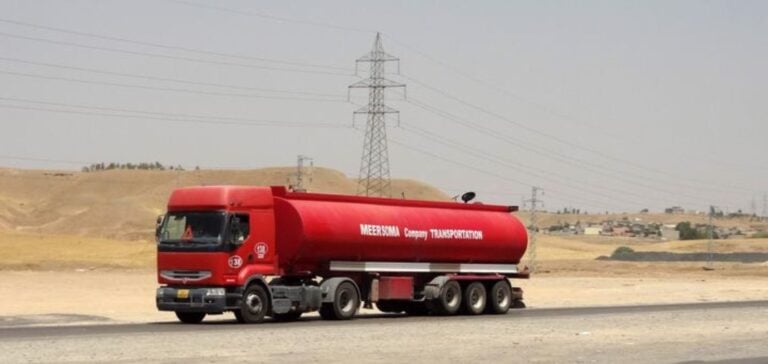The illicit oil trade from Kurdistan to Iran and Turkey is booming, prompted by the closure of the Iraq-Turkey Pipeline (ITP) in 2023. Hundreds of tankers transport around 200,000 barrels of discounted oil every day, generating monthly revenues of almost $200 million. This unofficial trade, now crucial to the regional economy, has developed because of the legal complexities surrounding the export of oil through official channels.
Issues and players involved
The closure of the pipeline prompted Kurdistan to step up trucking of oil to neighboring countries, outside any regulatory framework. Oil industry sources and diplomats reveal that this situation is contributing to Iraq’s inability to meet the production cuts agreed with the Organization of the Petroleum Exporting Countries (OPEC). What’s more, income from this activity is completely unregistered, exacerbating tensions between the Iraqi federal government and the Kurdish Regional Government (KRG).
Economic and political impact
The parallel oil trade has major implications for relations between Kurdistan and its allies, notably the United States. The US authorities are examining whether this trade violates the economic sanctions imposed on Iran. This situation could also complicate relations with Turkey, which was involved in stopping official exports following international arbitration in Iraq’s favor.
Local consequences
The Kurdish economy, struggling to pay its public employees, benefits from these unofficial revenues, but to the detriment of transparency and legality. Local officials admit that oil trading revenues are not recorded in any official register, fuelling suspicion and accusations of corruption.
Analysis and outlook
This situation highlights a recurring problem in the Middle East: the illegal trade in natural resources, often facilitated by local political and economic players. Authorities in the region, as well as international observers, are concerned about the long-term consequences of this illicit trade, which could reinforce internal divisions and further weaken Iraq’s central authority.
The roads used by the tankers have also become points of tension, with frequent accidents and damaged infrastructure, angering local residents.
The parallel oil trade in Iraqi Kurdistan, while lucrative in the short term, represents a major challenge to the region’s economic and political stability. The closure of the ITP pipeline has not only disrupted traditional trade flows, but also opened the door to unregulated transactions that complicate national and international resource management. While the authorities seek solutions to regularize and monitor this trade, the question of transparency and fair distribution of revenues remains a burning issue.






















